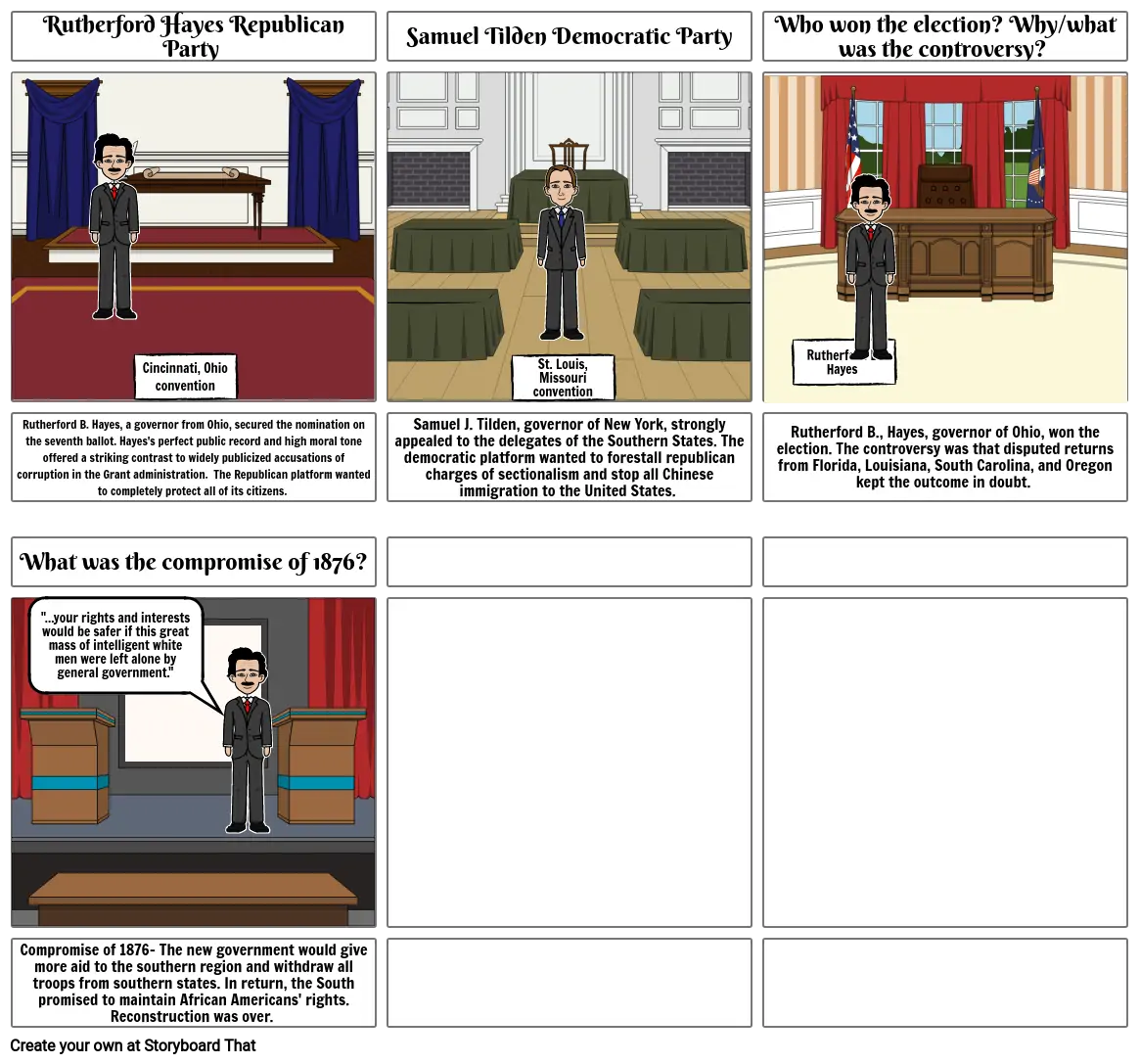1876 presidential election

Storyboard Text
- Rutherford Hayes Republican Party
- Samuel Tilden Democratic Party
- Who won the election? Why/what was the controversy?
- Rutherford B. Hayes
- Rutherford B. Hayes, a governor from Ohio, secured the nomination on the seventh ballot. Hayes's perfect public record and high moral tone offered a striking contrast to widely publicized accusations of corruption in the Grant administration. The Republican platform wanted to completely protect all of its citizens.
- What was the compromise of 1876?
- "...your rights and interests would be safer if this great mass of intelligent white men were left alone by general government."
- Cincinnati, Ohio convention
- Samuel J. Tilden, governor of New York, strongly appealed to the delegates of the Southern States. The democratic platform wanted to forestall republican charges of sectionalism and stop all Chinese immigration to the United States.
- St. Louis, Missouri convention
- Rutherford B., Hayes, governor of Ohio, won the election. The controversy was that disputed returns from Florida, Louisiana, South Carolina, and Oregon kept the outcome in doubt.
- Compromise of 1876- The new government would give more aid to the southern region and withdraw all troops from southern states. In return, the South promised to maintain African Americans' rights. Reconstruction was over.
Over 30 Million Storyboards Created
No Downloads, No Credit Card, and No Login Needed to Try!
